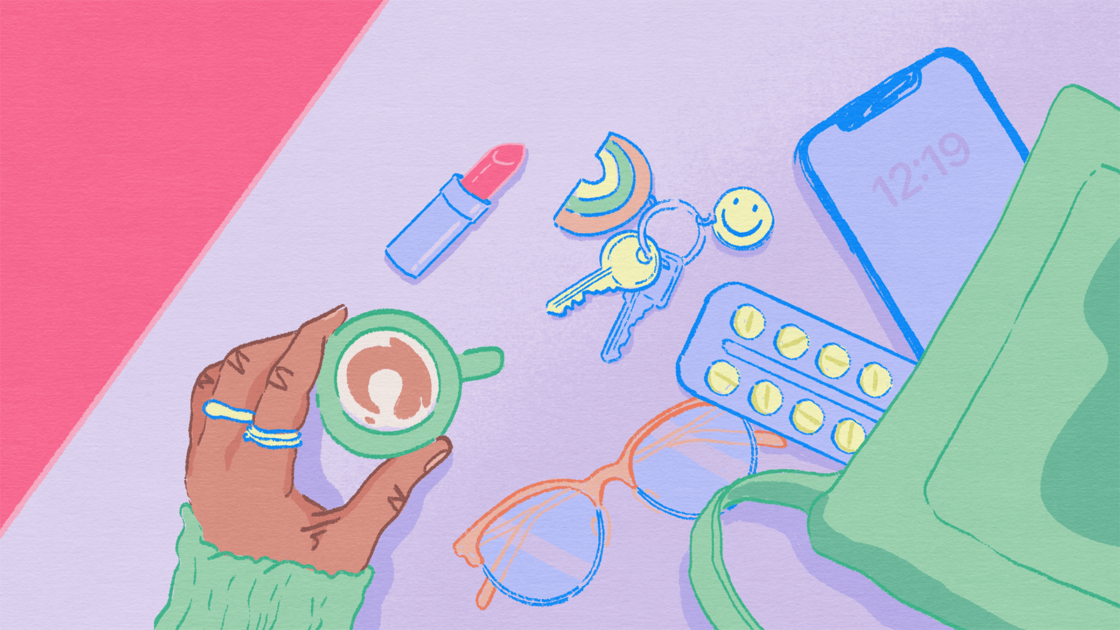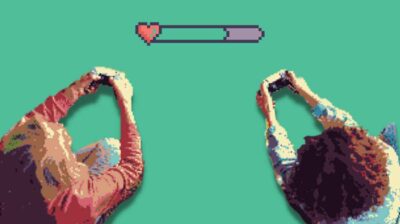What are the different types of mental health medications?
We simplify the process of learning about common mental health medications.

A mental health medication is any medication used to help treat a mental health condition, reduce the symptoms of a mental health condition, or prevent a mental health condition from returning. Mental health medications are usually used in combination with other treatments, like talk therapy. There is a wide range of medications used to treat mental health difficulties. Each one has its own combination of uses and side-effects.
Deepening your understanding of mental health medications can help you make more informed choices about mental health treatment. This article contains basic information about mental health medication. However, it doesn’t cover all medications available and should not be used to make medical decisions. If you are considering mental health medication, it’s important to make these decisions in consultation with a medical professional, such as a GP or a psychiatrist.
How are mental health medications prescribed?
Mental health medications can only be prescribed by a psychiatrist or your GP. Your medical professional will consider a number of factors before recommending medication as part of your treatment plan. These factors generally include:
- The type of mental health difficulties you are experiencing
- What symptoms these difficulties are generating
- How long you’ve been experiencing these symptoms
- The severity of your symptoms
- How symptoms are affecting your life
- Your broader medical history
People react to mental health medications in different ways. This means that you could be more or less sensitive to a particular medication, compared to others who are experiencing similar symptoms. It often takes some time to find the right medication and dosage to suit your needs. When you are first prescribed medication for your mental health, your doctor will often monitor how your body is responding to the medication. They will also check whether you’re experiencing any adverse side-effects. This process can take time. Some medications only start having an effect after you’ve been taking them for a certain period of time. If the medication isn’t working as well as expected, your GP or psychiatrist may change the dosage. Alternatively, they might try a different medication, either alone or in combination with your current one.
How do mental health medications work?
Mental health medications work by changing the levels of a group of chemicals in the brain that help carry brain signals. These chemicals are called neurotransmitters. These neurotransmitters have an influence on your mood, emotions, and thinking.
Mental health medications work by changing the levels of chemicals in the brain. However, researchers still aren’t sure how these processes work. Just because these medications affect the levels of brain chemicals does not mean that mental health conditions are caused by chemical imbalances in the brain. Mental health medications can be helpful in reducing the symptoms of mental health conditions, but they don’t always address their underlying causes. For this reason, your GP or psychiatrist will often recommend use of medications alongside other treatments, such as therapy.
Will I have to take mental health medication my whole life?
Everyone interacts differently with mental health medications. It can therefore take time to tailor your medication treatment to your needs. Sometimes, mental health medication is used in the short term to help someone get over an immediate mental health crisis. In other circumstances, medications are used as a long-term treatment to help someone manage ongoing mental health symptoms. For many people, mental health medication allows them to live meaningful lives without the intrusive symptoms of mental health conditions.
Types of mental health medications
Learning about mental health medications can be really confusing at first. There are many different mental health medications available and new ones are being developed all the time. Additionally, the same medication can be known by different names. Every medication has a generic name, as well as being known by the brand name of its manufacturer. For example, paracetamol is also known as Panadol, its brand name.
Some mental health medications are made by several manufacturers. This means that the same medication can be known by multiple different brand names, depending on who made it. Being aware that people use different names to refer to the same medication can be helpful if you are discussing medications with a mental health professional.
Depending on their uses and effects, most mental health medications can be divided into four main categories:
- antidepressants
- anti-anxiety medication
- anti-psychotic medication
- mood stabilisers
Antidepressants
Antidepressants are a group of medications used to treat clinical depression or prevent it from recurring. They can also be used to treat other conditions, including obsessive-compulsive disorder, generalised anxiety disorder, post-traumatic stress disorder and chronic pain.
Do antidepressants work?
There is good evidence that antidepressants help ease the symptoms of depression and other mental health conditions for many people. These medications appear to be more effective for people who have severe depression and less effective in cases of mild depression.
How long do I have to take antidepressants?
A course of antidepressant treatment often lasts around 6 months. Some people with a history of depression take antidepressants for 2 years or longer, while others take them indefinitely.
Antidepressants can take a number of weeks before they start being effective. Different antidepressants can have a range of different side effects. The most common side effects are usually mild, happen in this initial adjustment period, and wear off quickly. Sometimes, side effects can persist for longer. If you are experiencing side effects, or have still not felt any benefits after 4 weeks, speak to your GP or prescribing mental health professional.
What are the different types of antidepressants?
Selective serotonin reuptake inhibitors (SSRIs) are commonly used to treat symptoms of anxiety. Below, we list common SSRIs by their generic names, with brand names in brackets:
- Fluoxetine (Prozac, Gerozac, Prozamel)
- Citalopram (Cipramil, Ciprotan, Citrol, Escriprex, Escitalopram, Escitalpro, Lexapro)
- Paroxetine (Parox, Seroxat)
- Sertraline (Depreger, Lustral, Seretral, Serimel, Serlan)
Serotonin-noradrenaline reuptake inhibitors (SNRIs) are like SSRIs. There is evidence that SNRIs can be a more effective antidepressant than SSRIs for some people, while others respond better to SSRIs. Below, we list common SNRIs by their generic names, with brand names in brackets:
- Duloxetine (Cymbalta)
- Venlafaxine (Efexor, Ireven, Majoven, Vedixal, Venex, Venlablue, Venlaflex, Venlatev)
Medical professionals sometimes prescribe noradrenaline and specific serotonergic antidepressants (NASSAs) to people who can’t take SSRIs. The side effects of NASSAs are like those of SSRIs. They also may make you drowsy at first. Below, we list a common NASSA by its generic name, with brand names in brackets:
- Mirtazapine, (Mirap, Zismirt, Zispin)
Tricyclic antidepressants (TCAs) are an older type of antidepressant. They are no longer recommended as a first-line treatment for depression. This is because they can be more dangerous if you take an overdose. They also cause more unpleasant side effects than SSRIs and SNRIs. They are still sometimes used for people who have severe depression that doesn’t respond to other treatments. Below, we list common TCAs by their generic names, with brand names in brackets:
- Amitriptyline (Astilin)
- Clomipramine (Anafranil)
- Imipramine (Surmontil)
Anti-anxiety medication
Anti-anxiety medications are a group of medications used to treat symptoms of anxiety conditions, such as panic attacks and extreme fear and worry, or to prevent these symptoms from recurring. Many of the medications used to treat depression, like SSRIs and SNRIs, are also used to treat anxiety.
Does anti-anxiety medication work?
For many people, anti-anxiety medication is an effective tool for managing anxiety symptoms and improving their quality of life. However, anti-anxiety medications are not suitable for everyone. Not everyone will respond to these medications in the same ways. For instance, some people might experience adverse side effects or might not experience a reduction in their symptoms.
How long do I have to take anti-anxiety medication?
Medical professionals prescribe some types of anti-anxiety medications, like SSRIs and SNRIs, in courses lasting around 6 months. You can also take these medications for longer periods if needed. They typically require a few weeks of daily use before becoming effective.
Doctors use other types of anti-anxiety medications, like benzodiazepines, to treat short-term symptoms of anxiety. They are not designed to be taken for an extended period of time. This is because people can become dependent on them. You might have medications like these prescribed as “pro re nata” (PRN), meaning you take them as needed rather than on a regular schedule.
Different anti-anxiety medications can result in different side effects. The most common side effects are usually mild, happen in the first few weeks, and wear off quickly. Sometimes, side effects can persist for longer. If you are experiencing side effects, speak to your GP or mental health professional.
What are the different types of anti-anxiety medication?
It is common for medical professionals to use selective serotonin reuptake inhibitors (SSRIs) in treating symptoms of anxiety. Below, we list common SSRIs by their generic names, with brand names in brackets:
- Fluoxetine (Prozac)
- Citalopram (Ciprotan, Citrol, Esciprex, Escitalopram, Escitalpro, Lexapro)
- Paroxetine (Parox, Seroxat)
- Sertraline (Depreger, Lustral, Seretral, Serimel, Serlan)
Serotonin-noradrenaline reuptake inhibitors (SNRIs) are like SSRIs. There is evidence that SNRIs can be a more effective antidepressant than SSRIs for some people. Other people respond better to SSRIs. Below, we list common SNRIs by their generic names, with brand names in brackets:
- Duloxetine (Cymbalta)
- Venlafaxine (Efexor, Ireven, Majoven, Vedixal, Venex, Venlablue, Venlaflex, Venlatev)
Pregabalin is another medication that doctors use to treat anxiety symptoms. Medical professionals prescribe this medication to people who don’t respond well to SSRIs and SNRIs. They may also use it to treat conditions like epilepsy. Pregabalin can be sold under the brand name Lyrica.
Benzodiazepines are a type of sedative that doctors can sometimes prescribe to treat severe symptoms of anxiety for a short period. These drugs act very quickly, taking 30-90 minutes to start easing anxiety. People who take benzodiazepines for prolonged periods may become dependent on the medication. For this reason, they are usually not prescribed for any longer than 2-4 weeks at a time. The most common benzodiazepine is diazepam, which is sometimes sold under the brand name Anxicalm.
Anti-psychotic medication
Medical professionals use anti-psychotic medicines to treat symptoms of psychosis, such as hallucinations and delusions.
Does anti-psychotic medication work?
Anti-psychotic medications help many people recover from psychosis and live the lives they want to live by reducing and controlling their psychotic symptoms. They are not suitable or effective for everyone. These medications can come with side effects which can affect people differently. In some cases, these side effects can be severe.
How long do I have to take anti-psychotic medication?
Some psychotic symptoms, like hallucinations, can go away within days of starting anti-psychotic medication. Other symptoms, like delusions, usually go away within a few weeks of starting anti-psychotic medication. It can take up to 6 weeks to experience the full effects of anti-psychotic medication.
How long someone takes anti-psychotic medication depends on their symptoms. People often take anti-psychotic medication long-term, even after they have recovered from their psychotic symptoms. This is to prevent the psychosis symptoms from reoccurring. Some people take anti-psychotic medication for a number of years, while others take them for most of their life.
What are the different types of anti-psychotic medication?
Anti-psychotic medications fall into two main categories. People refer to older anti-psychotic medications as ‘first generation’ or ‘typical’ anti-psychotics and newer medications as ‘second generation’ or ‘atypical’ anti-psychotics. Taking older, first-generation anti-psychotics for a long time can cause health complications. Some of the newer, second-generation anti-psychotics can also cause health complications in some cases. For this reason, a medical professional may regularly monitor the weight, glucose levels, and lipid levels of people who take these medications.
Below, we list common first-generation anti-psychotic medications by their generic names, with brand names in brackets:
- Chlorpromazine (Clonactil)
- Haloperidol (Haldol)
Below, we list common second-generation anti-psychotic medications by their generic names below, with brand names in brackets:
- Aripiprazole (Abilify)
- Asenapine (Sycrest)
- Brexpiprazole (Rxulti)
- Cariprazine (Reagila)
- Clozapine (Clozaril, Denzapine, Leydex)
Mood stabilisers
Mood stabilisers are a group of medications used to treat bipolar disorder and other mental health conditions that cause mood changes, like depression.
How long do I have to take mood stabilisers?
It can take a number of weeks of regular use before mood stabilisers become effective. The length of time a person takes mood stabilisers depends on their symptoms. People often take mood stabilisers long-term, for 6 months or more, to help prevent relapse. A doctor may sometimes reduce a person’s dose of mood stabilisers to maintain their effectiveness if the person has been doing well on them for a while.
What are the different types of mood stabilisers?
There are three main types of medications that mental health professionals use as mood stabilisers: lithium, anti-convulsants, and anti-psychotic medications.
Lithium is a commonly prescribed mood-stabilising medication. People also refer to it by the brand names Camcolit and Priadel.
Doctors prescribe some anti-psychotic medications as mood stabilisers, including:
- Haloperidol (Haldol)
- Olanzapine (Olazax, Rolyprexa, Zalasta, Zyprexa)
- Quetiapine (Geroquel, Notiabolfen, Quentiax, Quentex, Quetiapine, Seropia, Seroquel, Tevaquel)
- Risperidone (Okedi, Perdamel, Risperdal, Rispeva, Rispone)
Medical professionals prescribe some anti-convulsant medications to stabilise moods. These include:
- Carbamazepine (Tegretol)
- Lamotrigine (Lamictal, Larig)
How to talk to your doctor about mental health medication
It can be scary and confusing if your GP or mental health professional recommends that you take mental health medication. No matter what mental health issues you are facing, you deserve to have your voice and concerns heard when it comes to your healthcare. A healthcare professional may suggest a medication as part of your treatment plan. If they do, they should give you all the information you need to make an informed decision about whether or not the medication is right for you.
Here are some questions that you can ask your mental health professional to figure out if a mental health medication is right for you:
- What symptoms will this medication help with?
- How long does it take for this medication to be effective?
- What are the most common side-effects of this medication?
- What are the most severe or worrying side-effects of this medication?
- How long will I have to take this medication?
- Are there any other treatments I could try instead of this medication?
- Are there any other treatments I could try alongside this medication to help me feel better?
I want to stop taking my mental health medication
If you’re taking mental health medication, it’s best not to stop or reduce your dose without consulting your GP or mental health professional, even if you are feeling better. Stopping suddenly could cause your symptoms to return or lead to harmful side effects.
If you want to stop taking your mental health medication, discuss it with your GP or mental health professional. They can inform you of the pros and cons of stopping your medication, as well as what to expect from the process. Your GP can also support you in making a plan to stop taking your medication gradually and safely. They will also oversee the process with regular check-ins to monitor your progress.
Feeling overwhelmed and want to talk to someone?
- Get anonymous support 24/7 with our text message support service
- Connect with a trained volunteer who will listen to you, and help you to move forward feeling better
- Whatsapp us now or free-text SPUNOUT to 50808 to begin.
- Find out more about our text message support service
If you are a customer of the 48 or An Post network or cannot get through using the ‘50808’ short code please text HELLO to 086 1800 280 (standard message rates may apply). Some smaller networks do not support short codes like ‘50808’.






